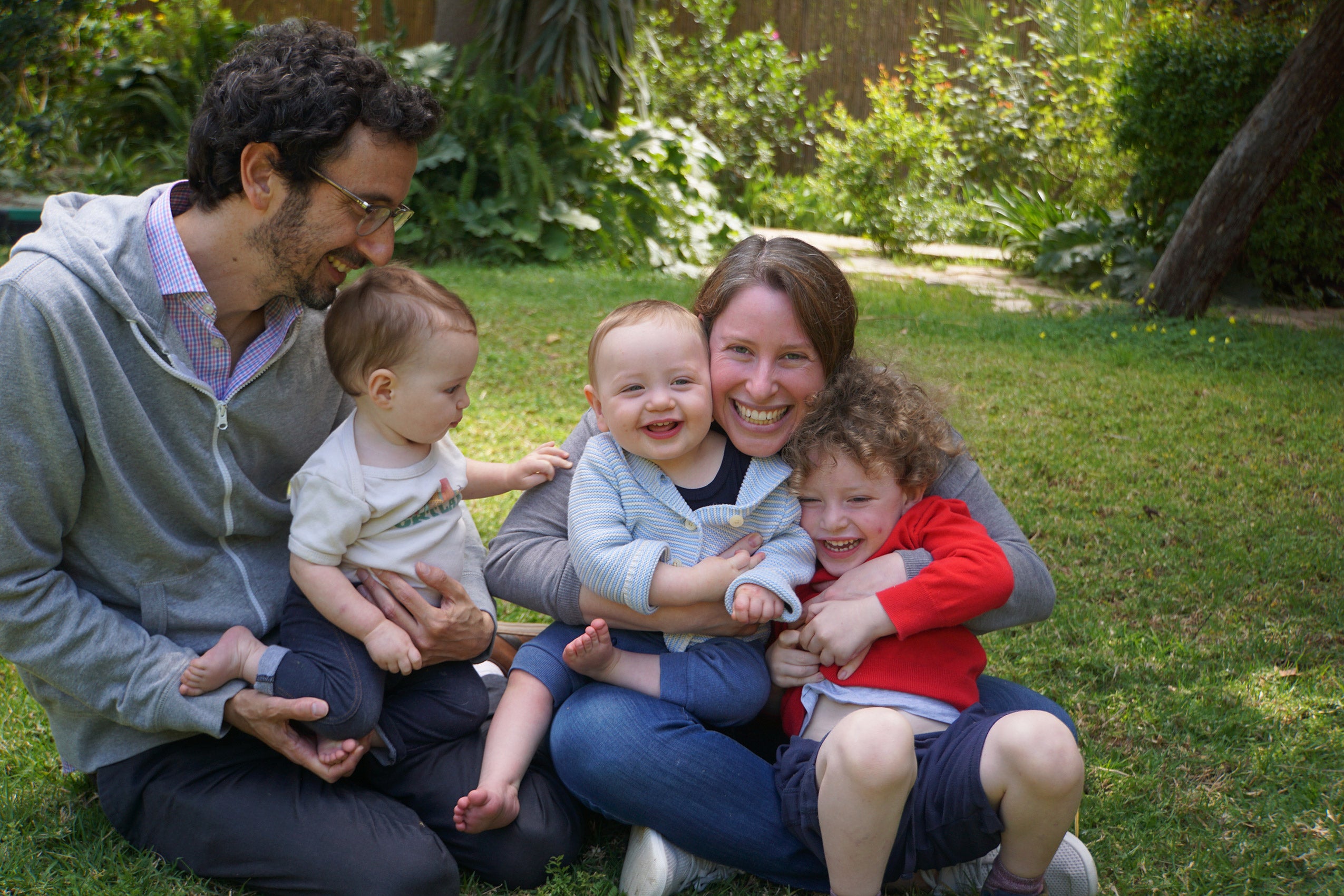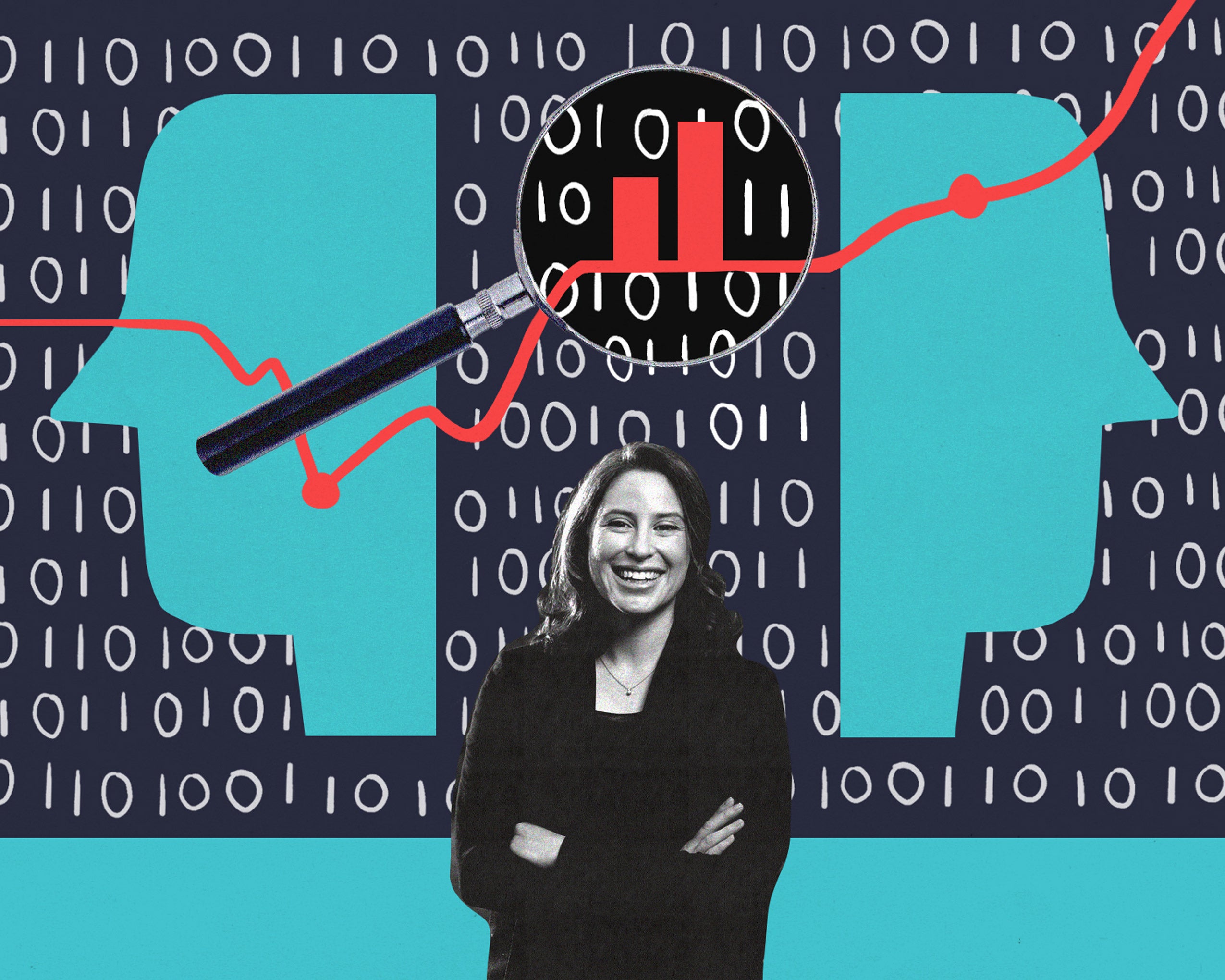In mid-March, Talia Gillis and her husband, Avi, had a solid childcare plan for their 3-year-old toddler and 15-month-old twins. “It was all carefully crafted—the twins here, our toddler there,” recalls Gillis, who was closing in on the final requirements for a Ph.D. in business economics from Harvard in addition to her S.J.D. at the law school (she’d completed her LL.M, in 2013). Then the coronavirus pandemic forced the closure of schools and daycare centers. “When it all came crashing down, like for many parents, it was a real struggle to figure out how to handle it,” Gillis says, with a broader smile than anyone would expect under the circumstances.
The new reality forced a quick decision: Gillis was speaking from Jerusalem (via Zoom, of course), where she and her family relocated to live with her parents. “It’s made a huge difference,” she says. “My parents are both working full time, but they’re around in the mornings and evenings. It’s good for morale.”
Moving around the globe is in Gillis’ DNA. She was born in London, and her parents moved to Melbourne, Australia, when she was still a baby, and then on to Israel when she was eight years old. “My parents are British, but their families were in Israel, so there was always the idea that they’d end up there,” she explains. “Australia was a detour, a way to go looking for adventure.”

Given the difficulty of securing childcare in the final weeks of her degree, Gillis has postponed the completion of her Ph.D. to later this year; in July, she’ll start full-time as an associate professor at Columbia Law School. “I feel very fortunate,” she says. “The plan is that I’ll teach contracts to 1Ls in the fall; and down the line, add more courses and seminars in my areas of research.”
Gillis’ work cuts a wide swath, with one focus being the intersection of artificial intelligence and consumer loan discrimination. It’s driven by a question: “What does it mean for a credit pricing algorithm to discriminate?” When Gillis examined how algorithms were used, she saw that the type of information being considered by automated systems when pricing credit for consumers had expanded dramatically. For context, she cites the increasing number of websites that allow customers to pay for a purchase in installments, which requires an immediate decision on creditworthiness. “Often the information used to make that determination will be what sort of computer you’re using, how you type, or how you navigated to the website,” says Gillis. “In other cases, you have lenders who provide online personal loans to people who don’t have credit scores, such as young people or recent immigrants. They might use your GPA, your SAT score, or where you went to school to determine loan rates.” Those methods raise questions around how to use existing legal tools and frameworks to regulate algorithms and the potential for discriminatory practices, she says.
That concern dovetails with her focus on consumer finance law, as well as her research in behavioral economics and household finance. “I’m very interested in understanding mental accounting, which is basically how we create different bins of income and outflows that affect our financial behavior,” she says. “Very rarely are our decisions based on an all-encompassing financial plan.” For example, present-bias—our tendency to give more preference to a payoff that is closer to the present when weighing two future options—often drives our decision making. For Gillis, an early instance dates back to when her parents offered the choice of a new toy in exchange for turning over all of her pacifiers. “I didn’t think about the value of the pacifiers at the time of the transaction,” she recalls. “Instead I focused on the immediate excitement of the new toy and discounted the future heartbreak I would experience when bedtime came and I no longer had a pacifier.” She adds,“Needless to say, I also exploit my children’s present-bias as a parent!”
It all fits with a growing focus in economics on how people actually make decisions, versus how they make them in theory, she says—an approach that carries over to law. “I’m looking forward to bringing that same perspective to thinking carefully about different ways of regulating consumer finance and what it actually means for consumer welfare and decisions,” she says. One of her current working papers considers privacy agreements between websites and users. “It’s quite a complicated thing, because these agreements look like typical contracts, we accept the terms, but we all know we don’t read them,” she says. “So, what would be a helpful framework to use in regulating these agreements?” To answer that question, Gillis is considering Harvard economist and Nobel Prize winner Oliver Hart’s incomplete contract framework as applied to privacy agreements, as well as other behavioral economics research on how consumers understand contract terms. Working across Harvard—at the law school, business school, and university—has offered her the opportunity to approach an issue from different perspectives, says Gillis. It’s a tactic she hopes to carry through as much as possible in her own classroom.
Until her position at Columbia begins, however, Gillis will continue her research and writing alongside parenting duties, like so many others working from home. “Luckily my husband has some flexibility in how to manage his schedule. Our routine doesn’t look at all the way it used to,” she says. “The twins and the toddler have gotten better at keeping themselves busy,” she adds, “but it’s a mess. It’s a complete mess.” And then she laughs.
